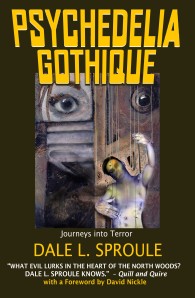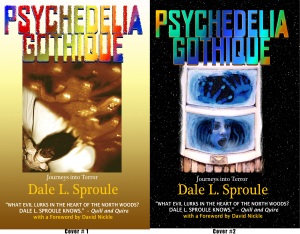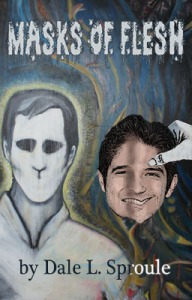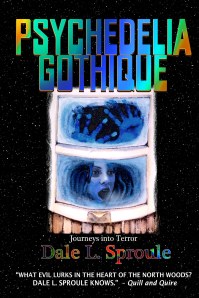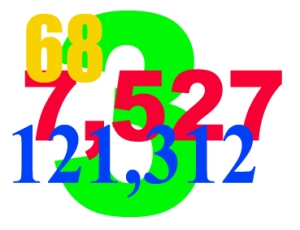Just read an article in a leading British newspaper about well-known, well-respected writers who are just this side of starvation. Not surprising in the current publishing environment, but disturbing nonetheless. Six months ago I’d have probably made some glib observation about how the landscape is changing and that writers and publishers have to recognize it, anticipate it, and be prepared to take advantage of the opportunities.
But since then, I have begun to question those so called opportunities.
After experimenting with self-publishing over the past six months, I can now offer a number of qualified observations based on my experiences. I should point out that this has been an “experiment” since the beginning, of the “what happens if I push this button” variety.
Part one of the experiment was to start re-building the audience that I allowed to drift away over the ten years when I stopped writing and marketing fiction. I joined Wattpad. With hundreds of thousands of subscribers and millions of hits per day, it seemed like a great place to start building an audience. While I considered Wattpad a terrific resource and a great place for writers to network and find inspiration, there were many problems I didn’t anticipate.
1. Backlash. With so many writers and publishers on the verge of starving in the dark, the problems with the system are only exacerbated by writers giving any work away for free – no matter what the quality of the work or the excuse or rationale behind it. The publishing industry doesn’t necessarily articulate it – but the policies about considering anything that appeared on Wattpad to be “published” makes it near impossible to sell anything that has been posted there. This is strong incentive to avoid putting new material on any such public forum. But it’s almost impossible to get anyone in the professional writing world to take anything published on Wattpad seriously. Most won’t even glance at it – which is probably for the best – because if they did like it it would just piss them off even more that you’re creating unfair competition for them by giving it away for free. If they didn’t like it, it would simply confirm their opinion about the essential worthlessness of material published there. It’s a lose-lose situation.
2. It’s an all-or-nothing forum. If I were to carry on and publish an entire novel on Wattpad, I could push to have it “featured.” Success with a “featured story” could theoretically bring millions of readers (this is distorted because readers are counted separately for each chapter – thus a book with 50 chapters and a million readers – in reality has 20,000 readers tops). To this point on Wattpad, I have just under 5,000 reads – which probably translates to about 50 readers. These are wonderful people – many of them good up and coming writers in their own right. But after six months on the site, how much of a new audience did I actually build? ie: how many of my Wattpad fans actually went on to buy my book? I estimate ten, give or take a few.
2. Self-publishing. Creating a nice product for very little investment is not difficult. Getting any attention for your self-published book is brutally hard. Even if you do everything “by the book” and manage to get some reviews and media attention, no one will necessarily follow through and buy the book. My PR efforts actually got some excellent results. The launch of Psychedelia Gothique got blurbed on Boing Boing and echoed on literally hundreds of sites. The book is available through almost any bookstore in the world via Print on Demand and is available through almost all online retailers. I have a site for the book that gets reasonably good traffic. I have half a dozen (mostly 4 and 5 star) reviews on Goodreads and Amazon – some from top Amazon reviewers. I’ve raised my profile by being invited to participate in public forums – most notably to date on SFSignal. This is all wonderful. As I gain more traction I may even earn back some of the credibility I lost with the more experimental side of my approach.
I also need to cut myself some slack. My book is a story collection after all. Story collections are famous for being slow sellers and most big publishers will only put out collections by big name writers. But even with appropriately diminished expectations – I am coming to the conclusion that I need to take the time to re-establish my credibility in the traditional publishing world before I set off on my own path.
3. I will also state for the record that overuse of social media ie: trying to maintain four blogs and three commercial websites at the same time will indeed burn you out while guaranteeing that you fail to keep up – and it will diffuse the impact of anything posted on any of the sites. What is required is focus. One or two sites max. Some social media backup – but it’s important not to waste too much time or energy on Facebook, Linked In, Twitter, Tumblr or anywhere else. For that reason I will be letting this and other sites to expire. As of mid-April, the only personal sites I will be maintaining are www.psychedeliagothique.com and www.sculptorstouch.com. I will be somewhat active on Facebook and Twitter and will remain on Linked In.
My first novel, The Goblin’s Touch will be finished in the next month or two. And I will apply all the lessons I’ve learned with Psychedelia Gothique to that project. Which means I will look for a traditional publisher and see where that takes me – before I go the self-publishing route. The book is the first in a projected trilogy and has a pretty strong hook so I am cautiously optimistic.
I’m thinking of increasing the price of the Psychedelia Gothique ebook – which will likely kill sales altogether…but at least I’ll be starving in good company. I do still believe strongly in self-publishing but will avoid putting all my eggs in that particular basket until it achieves more legitimacy in the eyes of the traditional publishing world.


